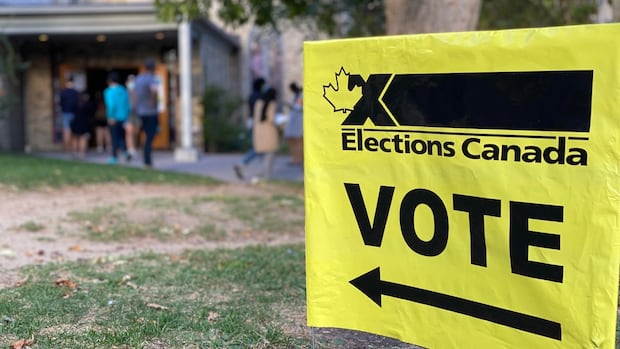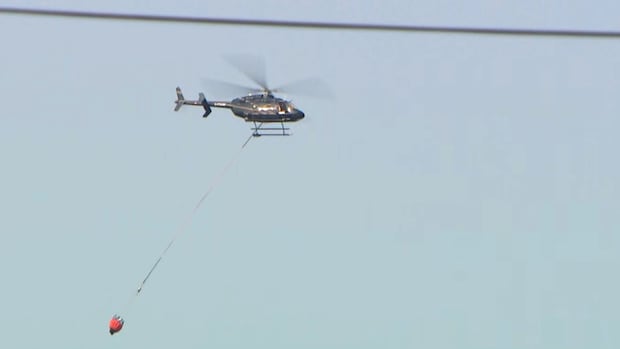Auto maker Stellantis has confirmed that it is postponing production of its 2026 Dodge Charger Daytona R/T as it continues “to assess the effects of U.S. tariff policies.”
But the company says the decision will have no impact on jobs at its Windsor Assembly Plant, which employs 4,500 people to build the Charger and the Chrysler Pacifica minivan.
Stellantis says it plans to add a four-door Charger model in 2026, and add another new model in the second half of that year.
Industry analysts and insiders say they too believe the move is likely to have little impact on employment at the plant.
“Unifor does not anticipate any immediate impact on staffing levels for our members,” said Lana Payne, the national president of Unifor, the union that represents the plant’s workers.
“The plant is currently ramping up for the launch of additional Charger models, and this continued work is expected to maintain current employment levels for now.”
Postponement expected to have little impact on jobs
Payne added, however, that the ongoing U.S. trade war with Canada will continue to foster economic uncertainty and job instability in the auto sector, and her union will remain vigilant in defending its members’ jobs.
The Trump administration has levied 25 per cent tariffs on non-CUSMA-compliant vehicles assembled in Canada, though there are carve-outs based on the number of American-made parts in the vehicles.
Since then, there have been several shutdowns at the Windsor facility.
Most recently, the company announced in early May there would be a mix of shutdowns, reduced hours and full production over 12 weeks — a change the company did not attribute to tariffs.
The president of the Automotive Parts Manufacturers’ Association, Flavio Volpe, says the latest Stellantis decision shows how sensitive Canadian auto production is to the actions of the U.S. administration, not only when it comes to tariffs, but also when it comes to electric vehicles.
But Volpe said the decision to postpone the more price-sensitive base model of the Charger EV while focusing on higher-end models whose buyers are less price-conscious alleviates some of his concerns.
“This is a company saying, ‘OK, let’s keep that car platform alive. How do we adjust the wide customer base we have for Charger and still keep production happening in Windsor?'” he said.
As long as production remains stable, he added, it’s not bad news.
One Canadian auto journalist said he believes Stellantis’s decision is about appeasing U.S. President Donald Trump without costing the company too much money.
Stellantis didn’t sell a large number of electrified Chargers in the United States, according to Greg Layson, the digital and mobile editor for Automotive News Canada.
“What I can tell you about Windsor is I’ve been told from people on the inside that, yes, they are focusing on internal combustion engine versions of the Dodge Charger,” Layson said.
“That includes retooling the engine line, I’m told, to put in a bigger engine.”
Layson said the company’s latest move should concern Windsor Assembly Plant Workers, but it should not be a cause for panic.
Minister ‘convinced that we can get to a good place’
“You’re going to see more shifts smoothing; I don’t think you’ll see permanent layoffs,” Layson said.
“The concerns should be greater up the 401 in places like Brampton where that factory is idle, in places like Oakville where that Ford factory is currently being retooled at a much slower pace than everyone thought.”
Production on the 2026 Charger Daytona R/T was supposed to begin later this year. The company has not specified when it might resume.
Innovation, Science and Industry Minister Mélanie Joly says she spoke with Jeff Hines, the CEO of Stellantis’s North American operations, Thursday morning and was assured that Canadian vehicle manufacturing jobs would be protected and the ‘conditions of workers would remain the same.’ Her comments follow news that the automaker is delaying production of the Ontario-made Dodge Charger because of U.S. tariffs.
Industry Minister Mélanie Joly told reporters Thursday morning that she talked with the CEO of Stellantis, who assured her that Canadian jobs were protected.
“We agreed that we would continue conversations in a positive way regarding EV investments in Canada, and I’m convinced that we can get to a good place,” she said.
“Obviously, this decision is linked to U.S. tariffs, and so, as we said, we would continue to fight for Canadian jobs, create new ones and grow the Canadian economy.”








